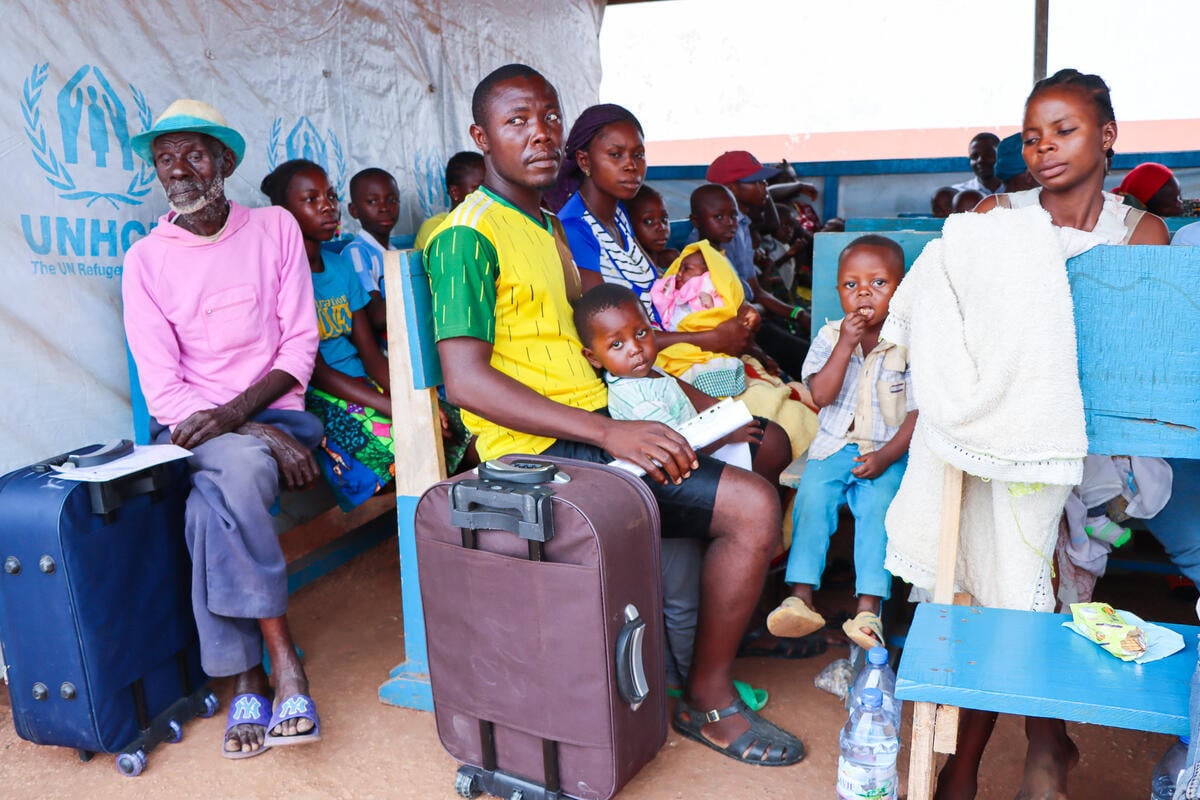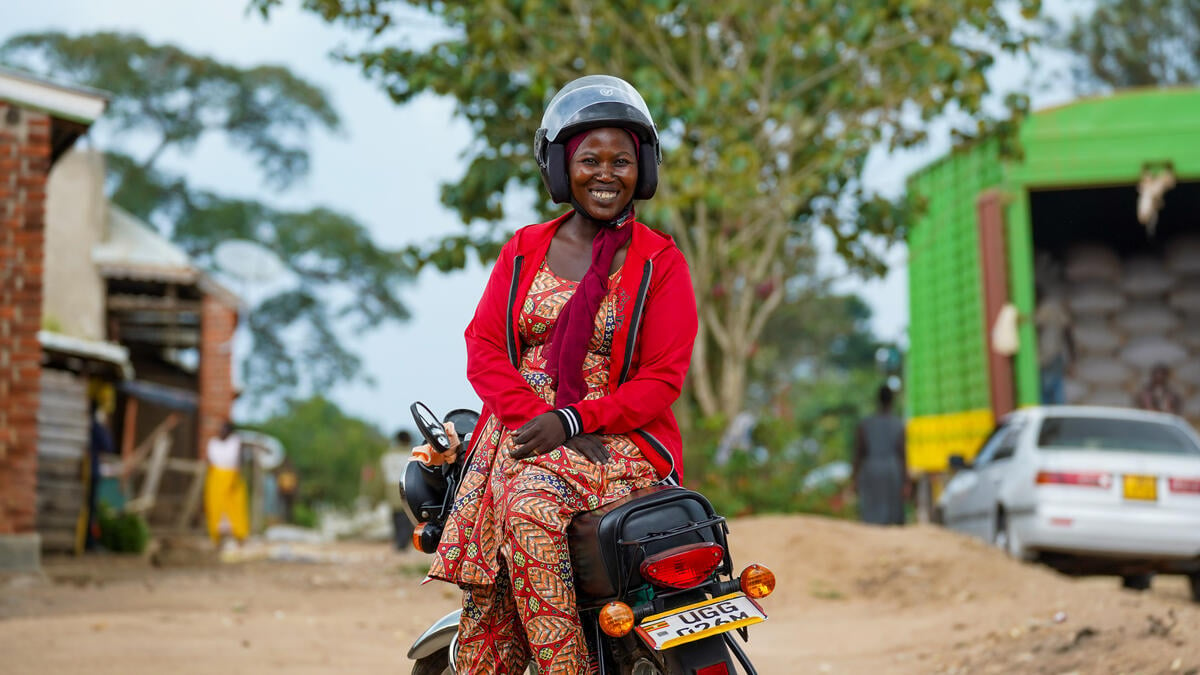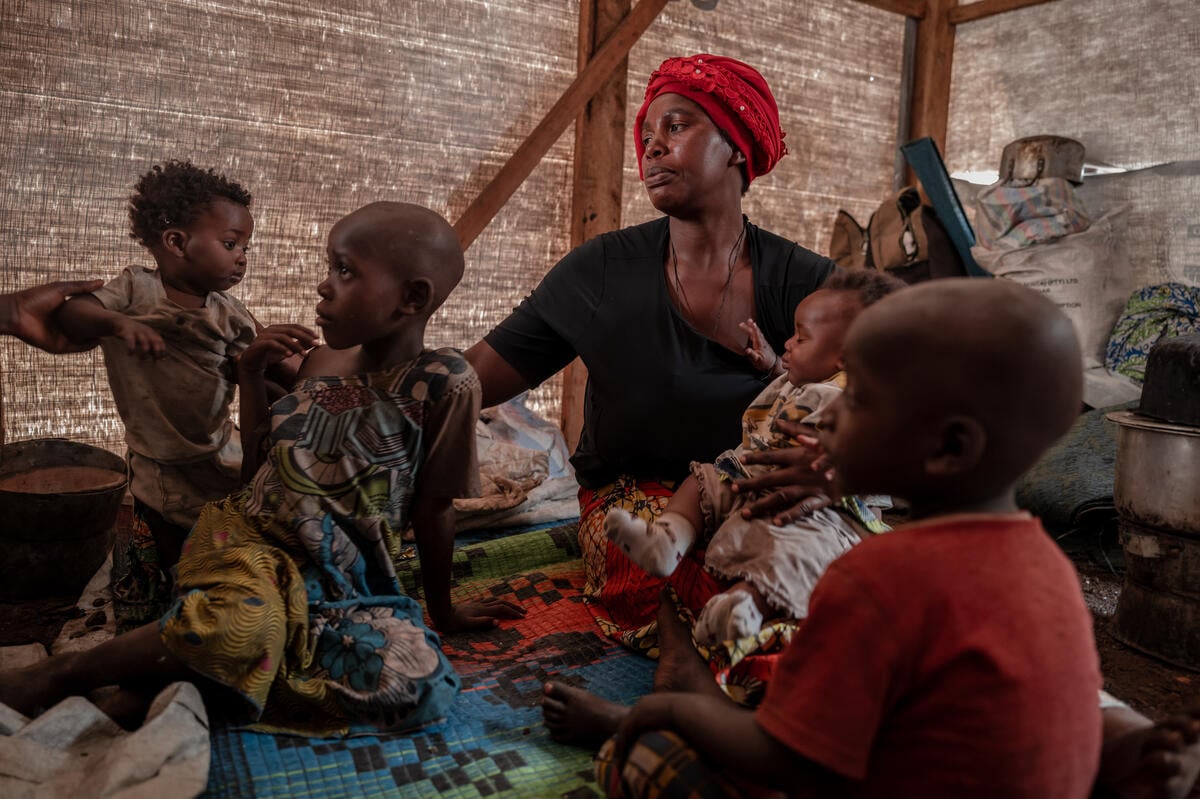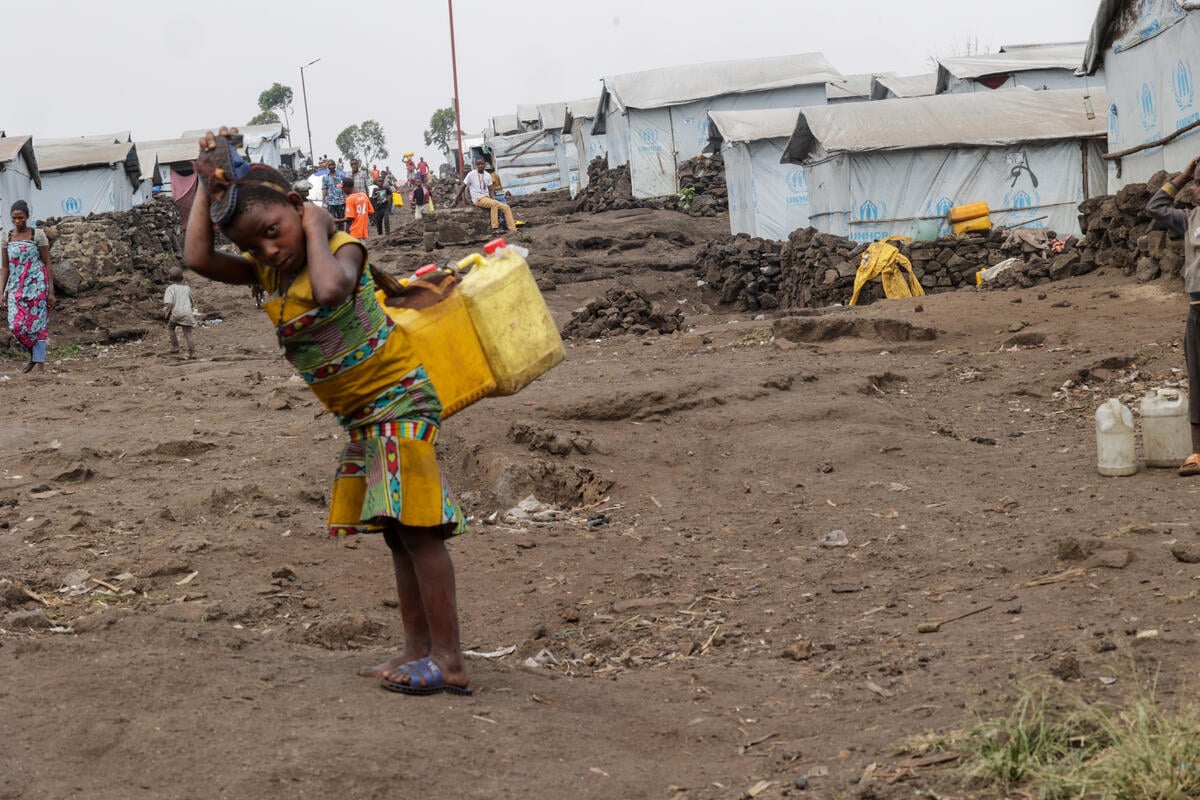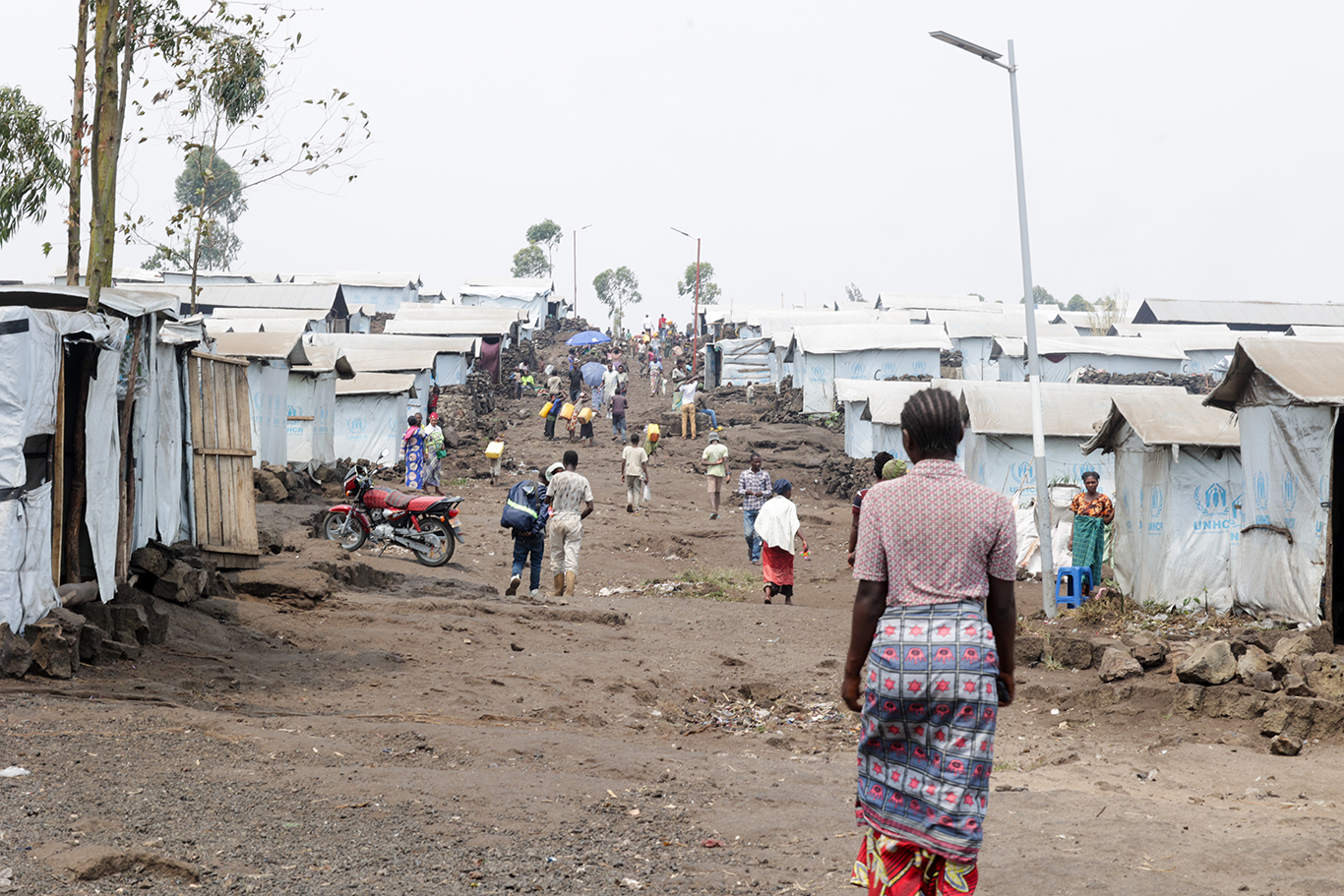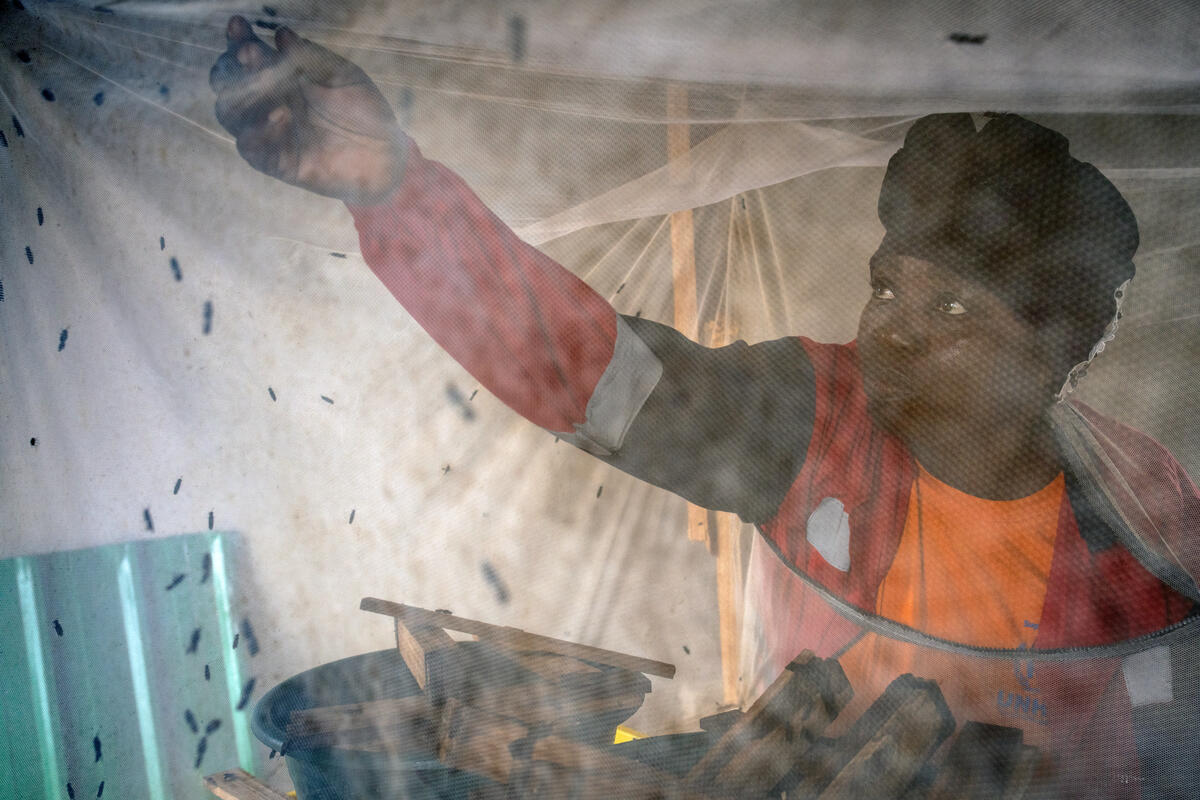Democratic Republic of the Congo: More flee in North Kivu
Democratic Republic of the Congo: More flee in North Kivu
Thousands of Congolese civilians are on the move in the Masisi and Rutshuru districts of the Democratic Republic of the Congo's (DRC) strife-torn North Kivu province. They are fleeing their homes amid reports of renewed fighting and rising tensions between government forces, renegade troops and rebel groups.
Over the weekend and yesterday, our staff, as part of an inter-agency team, has found large groups of newly displaced people making their way on foot from Rubaya and other Masisi villages towards the town of Sake and the nearby Mugunga site for internally displaced people (IDPs). Mugunga is about 15 kilometres west of Goma. The newly displaced carried few belongings, mostly packed in bundles on their backs. Many of the displaced said they left their homes fearing the ongoing military build-up in the area. They had, however, not witnessed direct fighting. Some of the IDPs have reported cases of rape and killings of civilians by armed men.
With the continuing displacement, UNHCR yesterday discussed the possibility of a new displacement site near Mugunga, which currently has as many as 18,000 people.
We fear that the pursuit of a military solution to the problems in North Kivu would further worsen the province's humanitarian crisis through the potential displacement of hundreds of thousands of additional Congolese civilians. We hope that the current problems in North Kivu can still be resolved through negotiations.
On Friday, we reported on a school building near Mugunga where some 600 displaced had sought shelter in over-crowded conditions. Our team reports there are now more than 2,500 people there.
In Masisi district, an estimated 2,000 newly-displaced Congolese are now sheltering around a school building in the centre of Mushake village with few supplies. Unaccompanied children are also among the displaced, as well as parents desperately looking for their children. UNHCR and NGO joint protection monitoring teams are screening newly arriving IDPs around Mugunga.
The full scale of displacement is difficult to gauge as we and other humanitarian agencies face increasingly limited access to many areas in Masisi and Rutshuru districts. We fear there may be many more in areas we cannot reach. A growing number of Congolese are seeking shelter at more than 20 spontaneous IDP sites scattered across the province. Since last December, the number of newly displaced in North Kivu is estimated to have surpassed 180,000 and continues to grow. In total, there are more than 640,000 IDPs in this eastern DRC province.
In a related development, an estimated 10,000 Congolese crossed into Uganda's Kisoro district yesterday evening. People entering Uganda said they were fleeing fighting between the DRC military and renegade troops. By this morning, the majority of them had already begun returning across the border to their homes. Due to general insecurity in North Kivu, especially at night, such rapid population movements are relatively frequent. On August 21, for example, some 10,000 Congolese crossed into Uganda and returned to the DRC a few days later. Only about 100 people asked for asylum in Uganda.
We again call on all parties to the conflict in North Kivu to refrain from direct attacks and atrocities against the civilian population, and displaced people in particular. Such acts constitute a breach of international humanitarian law.

